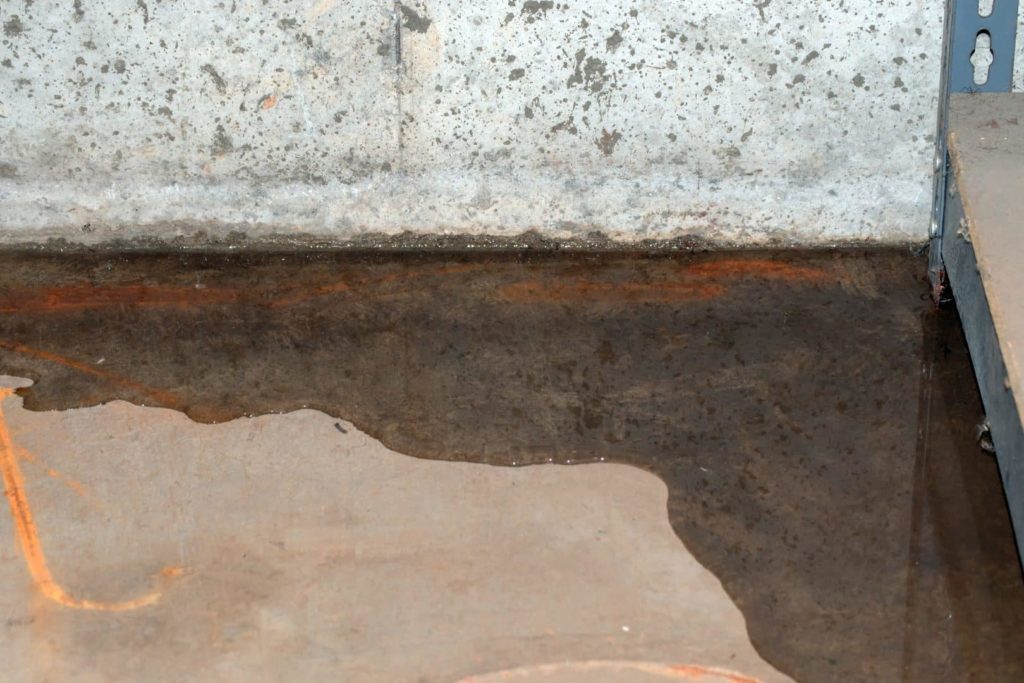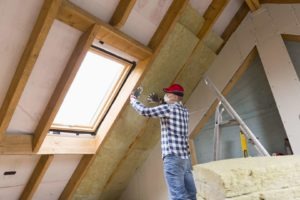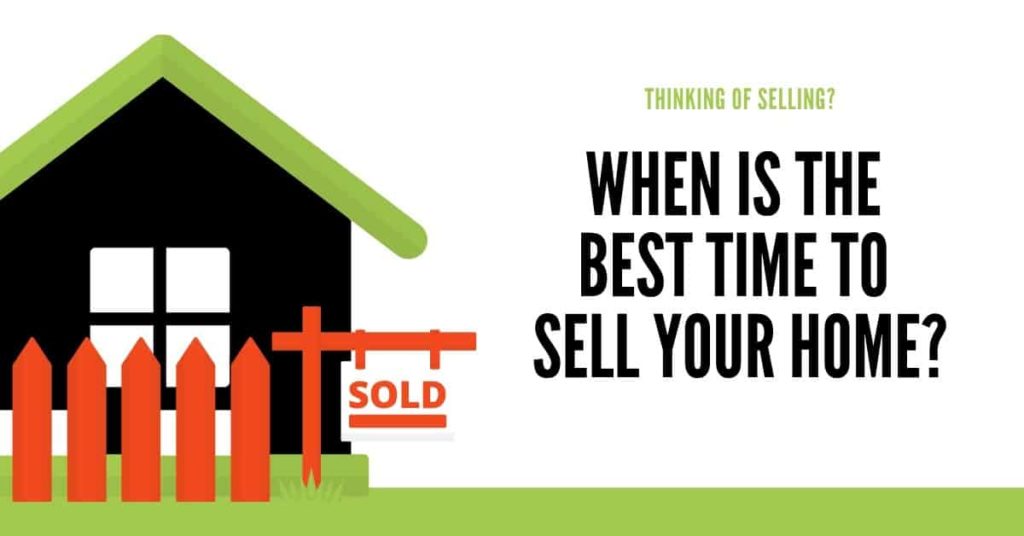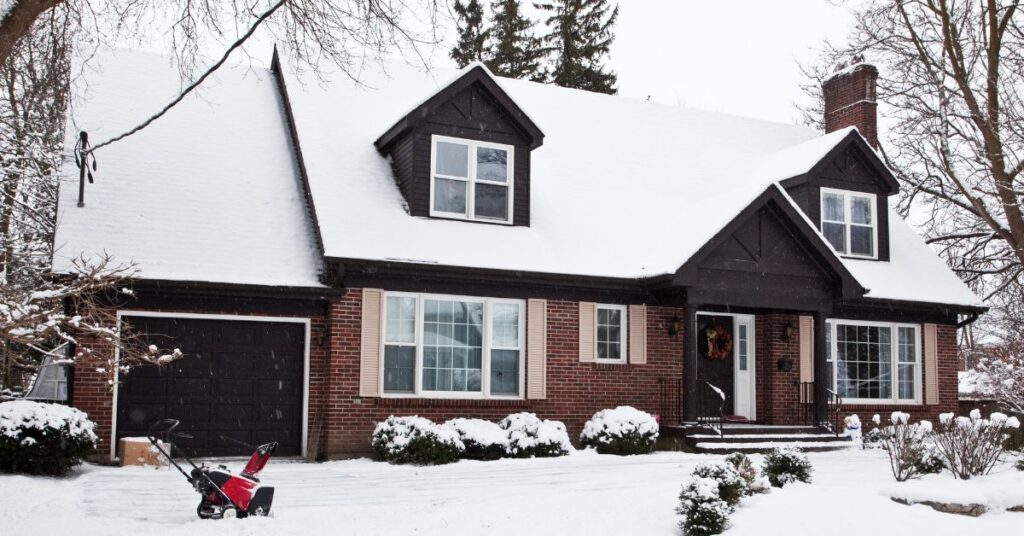Marketing your house for sale can be both difficult as well as exciting, particularly if it’s your very first time. Despite your reasons for selling, there are many things to be wary of in order to avoid a home sale disaster. Selling a home can be like flying in an airplane, with turbulence, bumps and delays along the way. By avoiding these top-seller mistakes, you can improve your chances of selling faster and for the best possible price.
Being Unaware of the Cost of Selling Your House
While you must inevitably profit from the sale of your home, lots of sellers forget the expenses connected with the sales process. For beginners, you should anticipate paying five to six percent of the overall sales price of your home to cover the commissions of both the seller and buyer agents.
For example, using a traditional real estate broker, if you sell your house for $500,000 you can end up paying upwards of $30,000 in commissions. Moreover, this doesn’t take into consideration further negotiations that may take place down the road, such as repairs or damage discovered during an inspection.
There are also closing costs you need to have estimated, such as those paid to escrow or a closing attorney, title, title insurance, etc. Your Realtor should be able to provide you an estimate of these home selling costs, commonly referred to as a “Seller’s Net Sheet”.
Not Considering A Discount Real Estate Broker
Before the advent of the internet and the development of such refined real estate sales technology, tools, and software, traditional models of brokerage ruled the market. This is where the original six percent for commissions took shape.
As mentioned previously, real estate commissions can get pretty steep, especially on a home that is worth a lot. Today, the discount real estate broker can provide essentially the same (or in some cases, better) services than any other Realtor serving your market today.
The difference is that Discount real estate brokers have evolved to become highly efficient, honing in on the specific tools necessary to get your home sold at the best price, avoiding unnecessary costs, all while saving you thousands in commissions. In some cases tens of thousands. Discount real estate brokers have become a disruptive force in real estate by leveraging technology to save the home seller money. Don’t make the mistake of overlooking your local discount broker and see what they have to offer.
Not Budgeting Enough Money for Your Move

When you consider making your move, you have two alternatives: hire a moving company or do it yourself. When you hire movers, they do the packing, heavy lifting, transporting, insuring, and depending on your deal, unpacking your belongings in your new home. While this seems ideal, it also comes with a price tag.
If you plan on moving, take into account how you’re going to physically relocate your belongings from one place to the next, and ensure that you have the tools, finances, and resources to get the job done right. Get a quote on moving from at least two agencies before making your decision and reconcile that amount in your seller’s net sheet to make sure you don’t end up coming out of pocket.
Check Your Home’s Equity Before Even Starting
Most people can’t sell their homes unless they have equity. Generally speaking, equity is a positive value in the home and equity minus sales expenses equals your profit. If you have equity in your home, that amount is likely to be the pool from which you pay everyone who assists in your sale.
A discount real estate broker really comes in handy if you’re close to the line, or just if you’re sensible and want to save thousands in real estate commissions. If you don’t have enough equity in your home to cover all the sales expenses, you may end up having to come “out of pocket” and pay the balance due before the deal can close. For more information, read our article on how real estate commissions work.
Pricing Your Home Incorrectly
Let’s admit it, everyone wants to get the highest price for their home. We’ve seen the memes and heard the jokes about “ this is what my home looks like to me, and this is what it looks like to a buyer”. While those may be tongue-in-cheek, there’s some truth there. Sellers who price their home too aggressively risk three significant problems:
1. Failing to Show in Internet Search Parameters.
In today’s internet world, people actually type in their price range when doing a property search. It’s usually one of the first questions. Pricing in line with market conditions ensures that your home will be seen by its true prospective buyers and will receive the exposure it needs.
2. Languishing on the Market
Overpriced homes are shown less, that’s for sure. And the longer your home sits, the more it costs you. Realtors are less likely to work hard for a home that they know is too expensive, and buyers are never looking to overpay for a home. The more days your home has on the market, the better chance it has of it becoming “stale” and simply falling out of interest.
3. Not Meet Appraisal and Having the Deal Fall Apart at the Last Minute
Unless you are selling the home for cash, it’s almost certain your buyer will be using a home loan. In order for a lender to loan on a home, it must be at or below the appraisal value. If the home appraises for much less, the buyer’s loan will not fund and the deal will fall apart. An appraisal is a formal process determining the home’s value for the purpose of lending, and if you don’t meet appraisal, it won’t sell.
Not Expecting Problems Before They Arise
No one likes unexpected surprises, but in a home sale, they’re not uncommon. Things like: Finding water or termite damage during an inspection. Not anticipating and understanding a buyer’s request for the seller to contribute to buyer’s closing costs as part of the deal. What to do with the refrigerator that you planned on keeping, but didn’t take out before the buyer saw it and now they want it in the deal. Or even worse, undisclosed buyer contingencies, such as having to sell and close on their own house before they can buy yours.
This is where an experienced Realtor comes to the rescue. By having years of experience dealing with surprises on a near-daily basis, Realtors are frequently able to come up with a solution to most problems, and they certainly anticipate them. No Realtor wants to work two or three months on selling a home sold only for the deal to fall apart over a problem that has an unseen solution in broad daylight.
The discount broker is especially adept at this, as their business model is likely to be based on anticipating and attempting to avoid every single problem that could possibly arise. A home is an investment, which means anticipating and preparing for problems is important to a smooth and pleasant sales experience.
Not Addressing Issues with the Floors or Cleaning
If the flooring is bad, the sales price will reflect it. Whether it be hardwood, laminate, tile, or carpet, before photographing, your selling experience will go much smoother and faster if the flooring looks clean. If the carpet is worn out, consider including a “flooring allowance” in the negotiation that allows the buyer to apply whatever amount of money you allow towards new flooring of their choice. If there is major flooding in the basement, this could mean more money being spent on renovation.

This is generally more advisable than changing the carpet yourself, as it’s impossible to predict the preference and tastes of every buyer. If your tiles have dirty grout, consider hiring a grout cleaner to remove discoloration from dirt and oils. Again, everything needs to look as clean as possible.
Failing to Stage the Home Properly
The essential goal of staging a home is to make the interior look and show better. Stagers can completely refurnish an empty house, or they can do a makeover on a home you may be living in during the sale. Staging generally improves the sales price and shortens time on the market, which is a bonus to the seller. Staging also comes with a price, so check out a couple of local stagers before deciding how to go. If you are unable to stage it, the next best way to sell is empty and clean.
Passing up on Professional Real Estate Photos
After price and location, photographs are likely to be your next best selling tool. Don’t skimp on your photos. With the advent of today’s high-tech cameras and imaging devices, high resolution, high-quality photos are a must. This is what your buyer scrutinizes online before deciding if they want to see it in person or not.
Professional photography can easily be worth the additional investment. Many experienced and discount real estate brokers are worthy of producing professional quality photos also. So consider your Realtor as a resource, and if they can save you money on hiring additional professionals, it’s likely they will. If you have an interest in it, drone photography can be very cool too. Buyers like drone footage as many times it lets them see more of the surrounding area than just what they can see in the photos.
Not Making Energy Efficient Upgrades
These days just about everything has turned towards energy efficiency. From appliances to windows to lightbulbs and yes, even to “smart” controllers, homes are becoming more energy-efficient than ever. If you have the old incandescent style lightbulbs, consider swapping them out for lower wattage compact fluorescent or LED lighting. These types of lights consume less energy, release less heat, and generally have the same or better lighting ability as incandescent bulbs.

Smart controllers turn on heaters on when they’re needed and off when they’re not. Same with lights. In fact, many controllers can be programmed for scheduling that fits your exact lifestyle. Returning home from vacation in the summer? Not wanting to arrive to a hot home? No problem! Turn on your AC with your smartphone before you catch your flight so the home will be cool when you get there.
The list of energy-efficient upgrades is pretty long, but by having at least some, you’re likely to appeal to anyone who wants to save money on heating and cooling costs. This makes your home more valuable and desirable to prospective buyers, so make whatever energy efficiency upgrades you can afford.
Showing the Home When it Isn’t Clean
Nothing is worse than showing a dirty house. Well, maybe there are things that are worse, but a dirty and/or smelly home can ruin the chance of your sale right inside the front door. As an experienced Realtor myself, I’ve opened the door to many homes where my buyer walks in, turns around, and walks right out. A dirty home is like shooting yourself in the foot and is entirely preventable. If you desire to get the “best price” for your home, it’s going to need to be clean. That should include not only the surfaces, floor and bathrooms, but pest control service as well. You don’t want the first impression of your home to be a roach crawling through it.
Don’t Forget About the Outside
Everyone knows the importance of curb appeal. It’s the home’s ability to begin selling itself from the moment the buyer drives up. If your home is overdue for a paint job, if the grounds are in rough shape, or if there is obvious exterior work to be done, a buyer may spot it before even getting to the door, thus influencing their opinion and their ultimate decision about your house.
The quicker a buyer begins picking up on negative qualities, the more they may focus and ruminate on them. The outside of your house can kill the deal before the buyer ever knocks. Make sure the home looks its best from the street all the way to the door, removing cobwebs, trimming hedges or trees, and cleaning up the lawn so the home looks well cared for. The faster the buyers pick up on the negatives, the faster your sale will derail. As a prospective seller, you want to address these items well before buyers start showing up.
Don’t Just Stop With The Exterior Paint
Everyone has their own unique preference and style. Once I sold the home of a San Diego Chargers football fan who had his entire interior painted in blue and yellow. Even the carpets were bright blue. When a home is narrowly focused on a specific style, it may be harder to appeal to a wide range of buyers – which is a goal.
Having the widest range of exposure ensures the majority of people who are shopping for a home like yours can find it, see it, ultimately come to see it in person. Don’t turn off buyers before they even look by having too much stylized or colorful painting. Neutral paint is best, although if it’s unaffordable to repaint you can also consider throwing in an allowance to the buyer. That gives them freedom to paint the house to their liking and can actually be an attractive bonus to the buyer.

Marketing A Home With A Yard That Needs Care
Another fast way to ruin your home sale is to neglect the grounds. In many markets, there are lots of homes for sale and buyers generally have multiple choices available to them. A clean attractive lawn and grounds goes a long way to setting up the home for success. As stated earlier, it improves the curb appeal and can help draw in as many buyers as possible.
Having Mismatched Kitchen Appliances
Perhaps your black oven died a couple of years ago and you changed it with a white one. And you installed a stainless steel microwave. While it will not necessarily influence the overall sales price, mismatched appliances are generally a turn off to high-end buyers, slowing the sale. If you need to replace appliances, your best bet is to find something similar, that matches with the rest of your appliances.
Socializing or Helping During a Home Showing
During all home showings, it’s highly advisable for the seller to be out of the home. While it may seem helpful to give buyers the grand tour home, from years of Realtor feedback and experience, according to the National Association of Realtors, and many other online sources, it doesn’t help. Let buyers see the home through their own eyes, not yours.
It’s best to take a walk around the block or grab a bite to eat, whatever you need to do to get out of the home while the buyer is previewing it. Knowing the owner isn’t present, a buyer is more likely to be candid about the home with their Realtor, which gives you an opportunity to receive truthful feedback. Not just a “Thanks, we’ll let you know.”
Don’t Take Lowball Offers Personally
Just as every seller wants to get the highest price for their home, the buyer wants to get it for the lowest. Don’t be insulted by an initial low offer. There are many fair reasons for an initial lowball offer, so don’t take them the wrong way. Simply send back a counter-offer and see if you can strike a deal. Negotiations typically go back and forth until the price and terms get settled on, and your Realtor will generally handle this part for you, but don’t let a lowball offer turn you off to any prospective buyer. Always make a counter-offer. You never know, you may get exactly what you want.
While it’s understandable that anyone selling anything wants to make money, a home is generally your most valuable asset, and if handled properly can turn a fantastic profit for you. Approach selling wisely and get all your ducks in a row before putting the home on the market. Consider a pre-sale home inspection to locate hidden repairs before the buyer sees them. Get your costs together on your seller’s net sheet and make sure you’ll be making money and not owing it. For problems that you can’t fix or believe makes more sense to leave be, consider offering and advertising seller concessions.

And most importantly of all, to save the most amount of money possible, and to afford you maximum flexibility, consider interviewing a discount broker to see how much money you can save. Best of luck in your home sale process.





